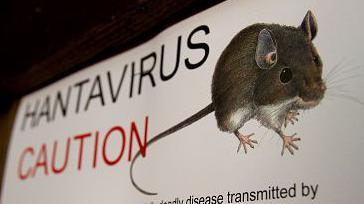Rodent nests found near house where Gene Hackman's wife died of hantavirus

Gene Hackman with his wife Betsy Arakawa in 1986
- Published
Nests and some dead rodents were found in outbuildings of the house where Oscar-winning actor Gene Hackman and his wife Betsy Arakawa were found dead.
New Mexico Department of Public Health records seen by BBC News documented evidence of the animals in eight detached buildings at their home in Santa Fe.
US officials previously confirmed that Ms Arakawa, 65, died from a respiratory illness linked to hantavirus, which can be transmitted by infected rodents.
It is believed she died a week before her husband, 95, who was in the advanced stages of Alzheimer's disease. Authorities found the deceased couple in their home in February.
An environmental assessment of the property took place on 5 March, a week after they were discovered, as part of the investigation into their deaths.
It found rodent faeces, a live rodent, dead rodent and a rodent nest in three garages, in addition to further rodent droppings in two small external houses and three sheds. Traps had also been set up.
There were sightings of rodents, a nest and faeces in two abandoned vehicles or farming machinery in the grounds of the property.
All eight detached outbuildings were within 50 yards (45 metres) of the main house where the couple lived, which itself was "clean with no signs of rodent activity," New Mexico public health officials said in their eight-page report.
Listen to the 911 call after two bodies found at Hackman residence
Authorities believe Ms Hackman died around 12 February and her husband on 18 February, with their bodies discovered on 26 February.
Medical investigators believe Ms Arakawa contracted hantavirus pulmonary syndrome (HPS), a life-threatening lung condition with symptoms including fatigue, fever, muscle aches, dizziness and abdominal issues, which led to a sudden death.
Hantavirus refers to a strain of viruses carried by rodents, primarily transmitted to humans through inhalation of airborne particles from dried rodent droppings.
Infections typically occur when the virus becomes airborne from a rodent's urine, droppings, or saliva, according to the Centers for Disease Control and Prevention (CDC), external.
If respiratory symptoms develop during HPS, the mortality rate is approximately 38%, according to the CDC. The agency reported 864 cases of hantavirus in the US between 1993 and 2022, mostly in rural western states.
Mr Hackman's cause of death was severe heart disease, with advanced Alzheimer's disease listed as a contributing factor. Experts told the BBC his Alzheimer's may have prevented him from realising his wife of more than 30 years was dead in the home where he was living.
Related topics
- Published8 March

- Published27 February

